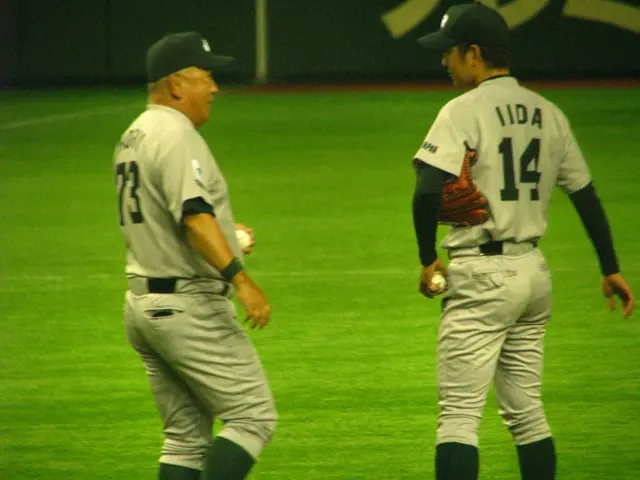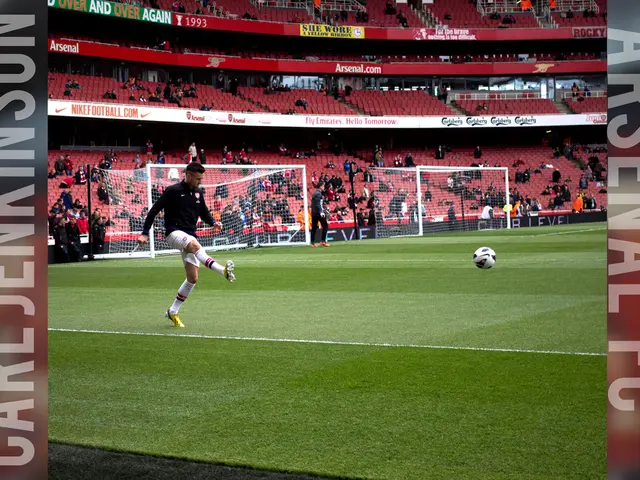UFC's Business Model under Scrutiny: Two Massive Lawsuits threaten the MMA Giant
UFC business model under challenge due to unusual legal action
Stay updated on the latest MMA events 🥋🌟 Follow us here on Buzz Arena!
The MMA industry is abuzz with a spots-shaking legal storm. The Ultimate Fighting Championship (UFC), the undisputed leader in mixed martial arts (MMA), faces two intense lawsuits that could potentially revolutionize the sport's business landscape.
Pay disputes among UFC fighters have long been a contentious issue, with fighters complaining about perceived exploitation due to the UFC's dominant market position. This discontent led to a partial settlement in a class action lawsuit back in 2016, following a ten-year legal battle. Now, two more lawsuits have hit the UFC, and the aftershocks could resound across the MMA world.
Inside UFC's unique contract structure:
Contrary to popular belief, MMA fighters are not employees but independent contractors. This arrangement lets the UFC control its fighters' movements, limiting their ability to quickly switch to other organizations. With two new lawsuits looming, this could change for good.
A typical UFC contract binds fighters to a certain term and a specific number of guaranteed fights. The risk of injury usually means fighters average a fight every six months. Clauses in these contracts often favor the UFC, making them complex and disadvantageous to the athletes.
The First Salvo: Misha Cirkunov's Antitrust Lawsuit- Lawsuit Filing: Late May 2025 (publicly reported in late May)- Key Allegations: Former UFC fighter Misha Cirkunov, backed by law firms such as Berger Montague and Cohen Milstein Sellers & Toll, accuses the UFC of maintaining a monopoly and monopsony in MMA. The lawsuit claims that the UFC uses contract clauses to suppress fighter wages and restrict their legal options. The lawsuit targets contracts signed after July 1, 2017, and is not covered by prior litigation such as Johnson v. Zuffa.
The Second Wave: Phil Davis' Antitrust Lawsuit- Lawsuit Filing: Late May/early June 2025 (reported on June 1)- Key Allegations: Veteran MMA fighter Phil Davis alleges that the UFC's monopoly over the sport is responsible for depressed wages across the industry, not just for UFC fighters. The lawsuit calls for structural changes in UFC contracts, specifically advocating for fighters to be allowed to exit promotional agreements without penalty after one year, which is a significant departure from current practices that tie fighters to multiple bouts or long durations.
These lawsuits follow in the footsteps of a recent $375 million settlement in the Le v. Zuffa case, another class action lawsuit against the UFC. Both lawsuits bring more pressure on the UFC, with prominent fighters lending their support to the legal battles. The court hearings for these lawsuits are yet to commence, and the UFC has not yet publicly responded to the new allegations.
Should these lawsuits succeed, they could bring fundamental changes to the MMA industry, such as scrapping or weakening of arbitration and class-action waiver clauses, and implementing more flexible contract termination options. Better pay and bargaining power for MMA athletes could become a reality, opening doors for rival promotions and potentially diversifying the industry. These cases could set new legal precedents regarding anti-competitive practices in sports, impacting not only MMA but other combat sports as well. Stay tuned to Buzz Arena for the latest news and updates on these game-changing legal battles! 🌟
The lawsuits filed against the Ultimate Fighting Championship (UFC) by Misha Cirkunov and Phil Davis, both accusing the UFC of maintaining a monopoly in mixed martial arts (MMA), could significantly alter the business model of sports management within MMA, ultimately benefiting MMA fighters through improved pay and contract conditions. The sports world keenly awaits the outcomes of these landmark legal cases, as they may establish new anti-competitive practice standards within the sphere of combat sports.







